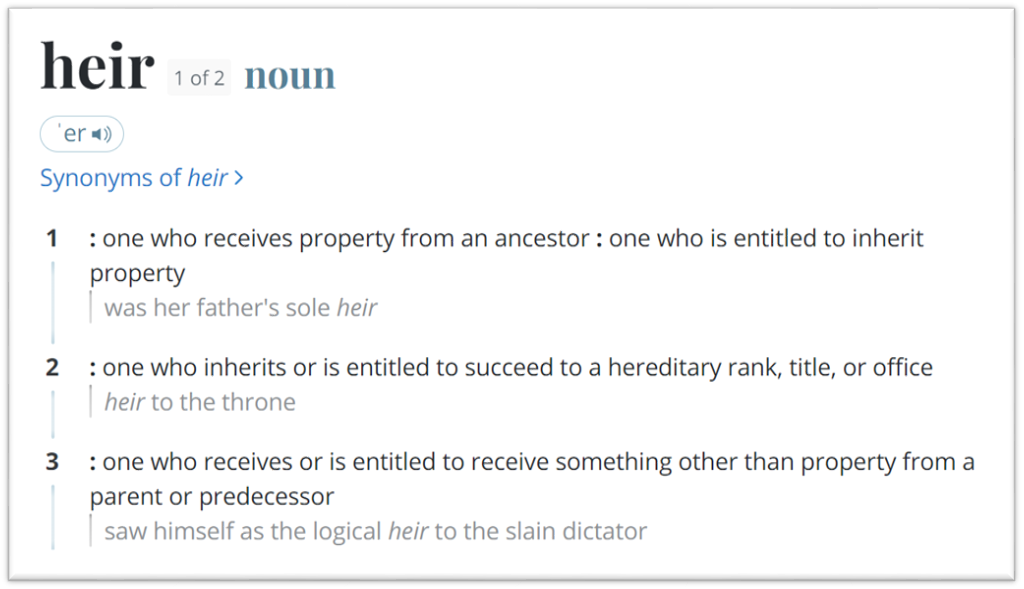Blog

What (or Who) is an "Heir"?
We’re FAMILYandHEIRS.com, so what is an “Heir”? Let’s start with some definitions:
“one who receives property from an ancestor; one who is entitled to inherit property.” - Merriam-Webster Dictionary
“a person who inherits or has a right of inheritance in the property of another following the latter's death.” Dictionary.com
“a person who will legally receive money, property, or a title from another person, especially an older member of the same family, when that other person dies.” – Dictionary.Cambridge.org
“An heir is someone who has the right to inherit a person's money, property, or title, when that person dies.” Collins Dictionary

Source: https://www.merriam-webster.com/dictionary/heir
So, how is this term used?:
“The father had only one son, who was his sole heir.”
“The prince was heir to the throne.”
“The corporation’s founder’s daughter was her heir-apparent.”
“The heirs met at the lawyer’s office for a reading of the Will.”
A lot of folks don’t know how the word “heir” is pronounced. It is NOT pronounced like “hair” (the hair on your head), but is rather pronounced just like “air” (the air you breathe). The “h” is silent.
So, in a typical family of five (husband, wife, and three children), the husband’s heirs are the wife and children. In this case “family” and “heirs” are the same. But what if the husband owned a small business with one other partner, and they promised each other that if either of them died, the other would take over full ownership of the business. (This presumes the wife and kids do not want to be involved in the business.) In this case, the heirs would be the family and the business partner.
Now, here’s a twist on the definition. Some older uses of the term “heir” state that it only relates to “a person who may legally receive property or assets from a deceased person's estate when there is no will or trust in place.” Law.Cornell.edu. In this use, “beneficiaries” and “heirs” are distinguished: A “beneficiary” is a person named by the estate owner (in a Will or Trust) to receive property or assets from the estate. An “heir” is entitled to inheritance by law (under the intestacy rules) when there is no estate plan. At FAMILYandHEIRS.com we do not draw this distinction and consider it archaic (out-of-date). In fact, even in Cornell’s definition, they add (in the third paragraph of the definition) that, “An heir's rights to an inheritance may be set out in a trust or will.” So, without getting overly technical, while “heir” and “beneficiary” may mean two very different things, nowadays they are often (but not always) used interchangeably.




